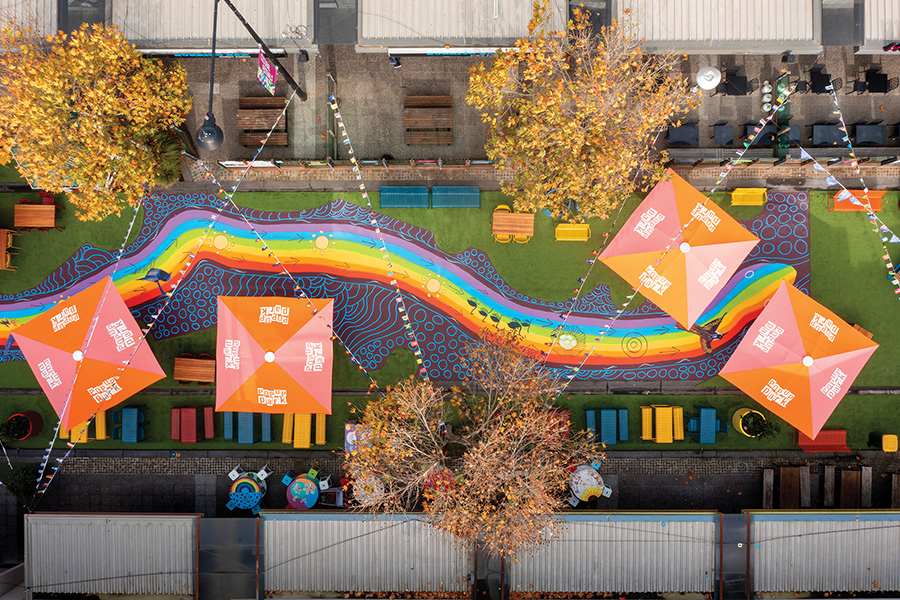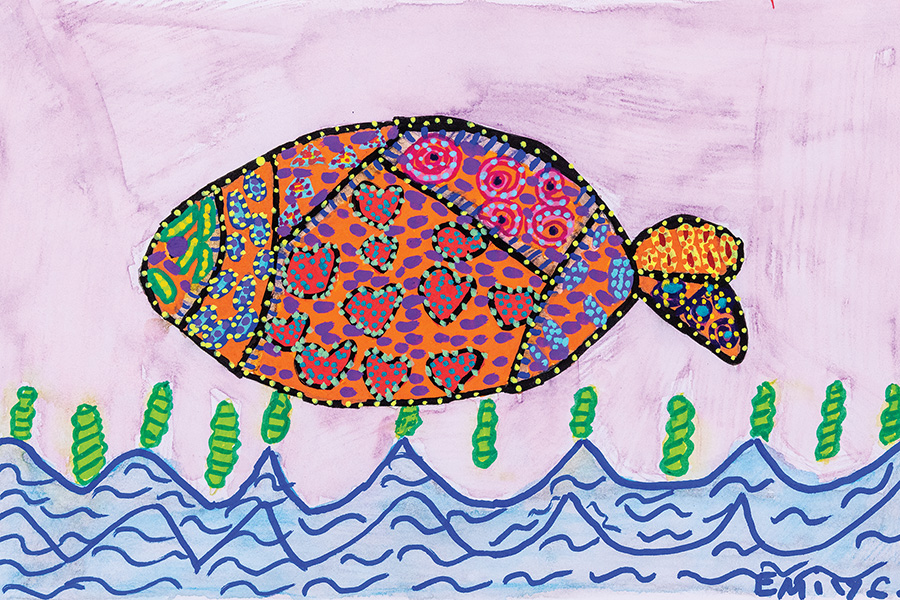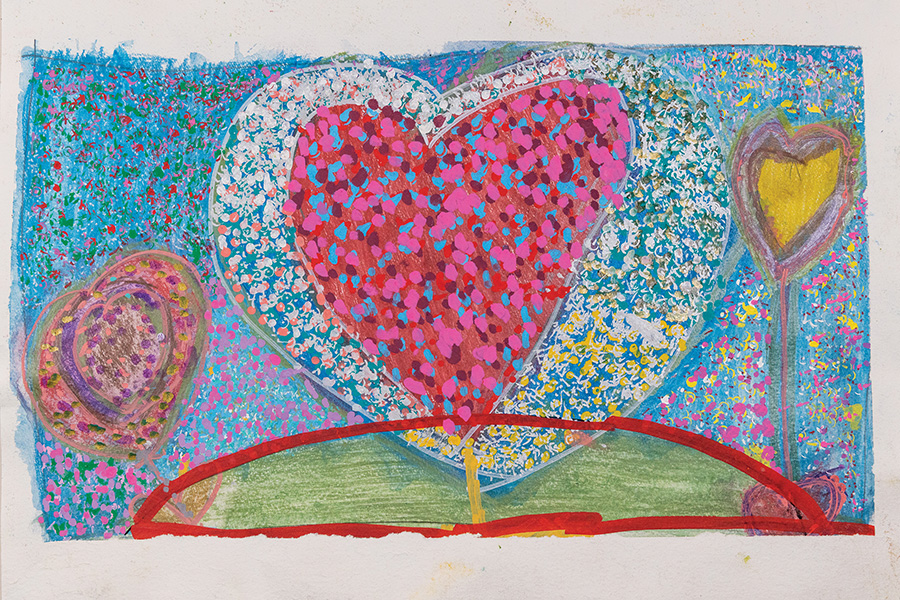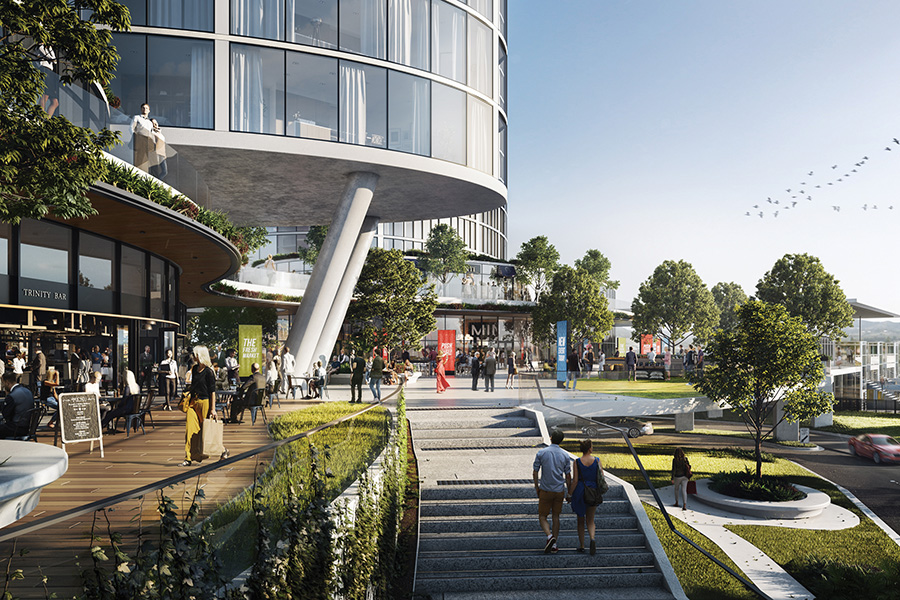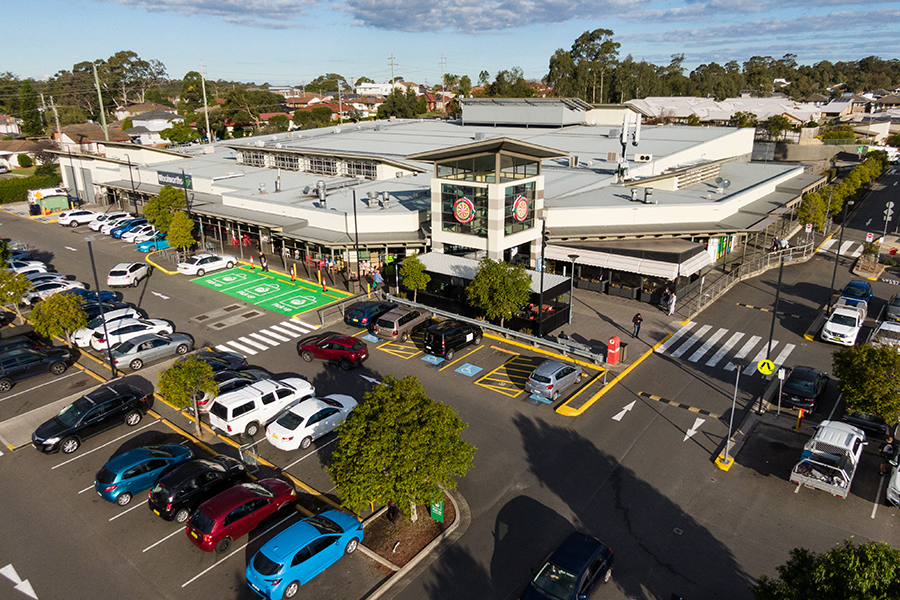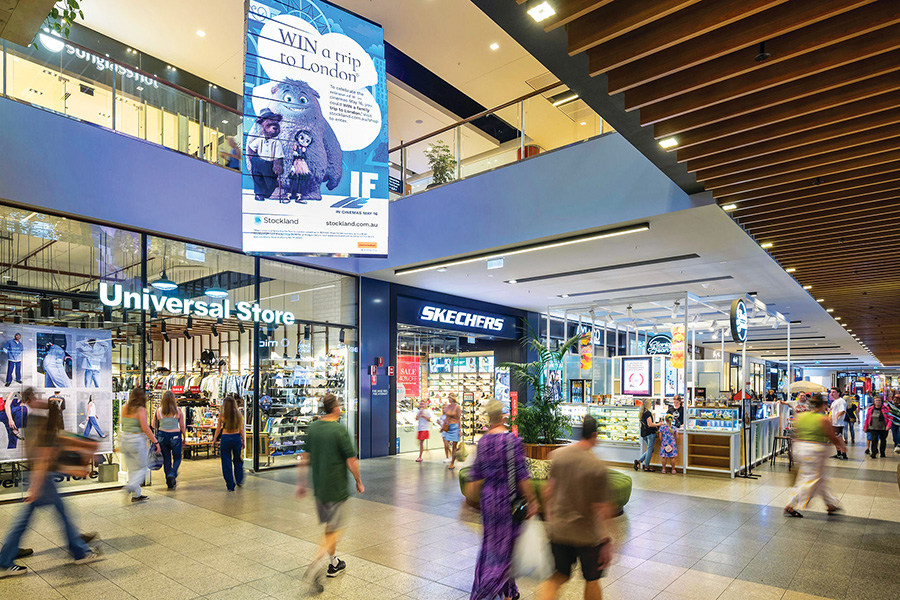Stockland’s Public Art Strategy is transforming its town centres with colourful murals. In its latest collaboration, a 65-metre long and seven-metre high mural in Stockland Rockhampton features some of Australia’s most loved mammals and birdlife. The mural ‘uplifts and inspires’ the whole community.
Stockland has been transforming spaces at its town centres with colourful murals, sculptures and semi-permanent artworks for almost a decade.
While the art brightens the town centres’ walls and entry points and breathes new life into public spaces, it does so much more by acting as a connector between people and places.
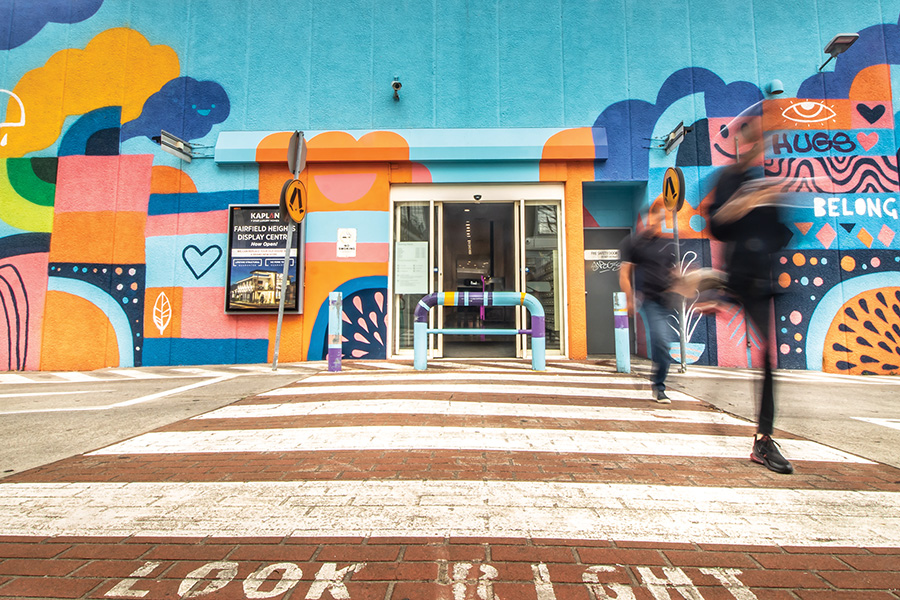
Artwork at Wetherill Park by HAPPY DECAY provides a bright gateway to welcome people to the centre
Stockland’s Public Art Strategy celebrates diverse cultures, fosters inclusivity, and holds up a mirror to our customers so they recognise themselves within the communities we operate in, all of which contributes to community wellbeing and resilience.
The Public Art Strategy is aligned to Stockland’s values and is an enabler for place-making and social sustainability initiatives aligned to our ESG Strategy, First Nations Strategy and Reconciliation Action Plan. Public Art, in all its forms, can also be considered as part of capital works programs and upgrades at our centres.
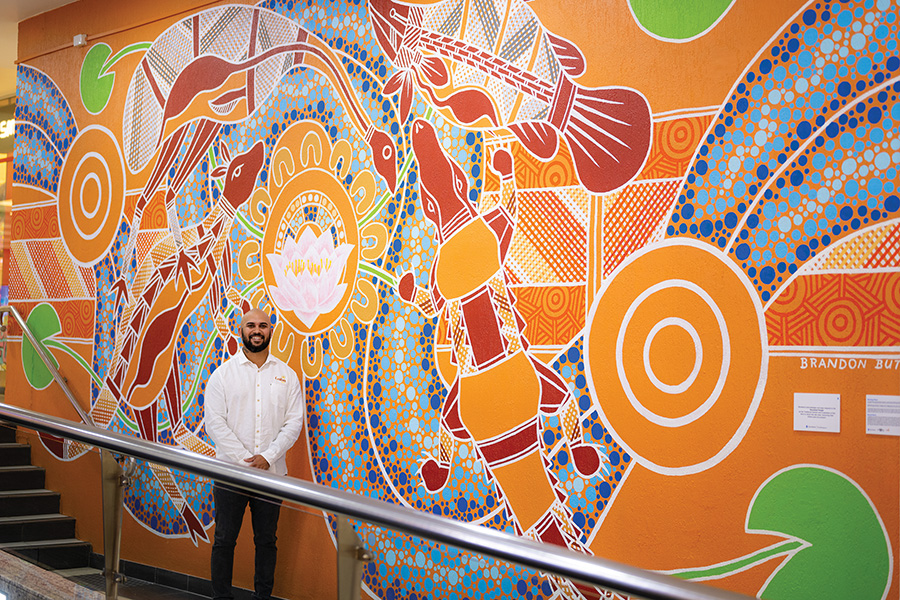
Reconciliation mural by Brandon Butler of Gaba Art at Rockhampton
A local lens
Throughout the commissioning process, we collaborate with councils and not-for-profit organisations to ensure that the final artworks draw on local perspectives and knowledge and, where possible, select local artists to lead or be part of the creative execution.
At Stockland Rockhampton, artists Shannon Crees and Binx from northern New South Wales worked alongside and mentored local Rockhampton artist Caitlin Broderick to create murals for the external walls, an entry point, and the dining and entertainment precinct.
The largest mural at a town centre so far, the artwork uplifts and inspires the Rockhampton community through its grand scale and vibrant colours and patterns.
The main mural, which is about 65 metres long and seven metres high, features some of Australia’s most cherished mammals and birdlife – kangaroos, a kookaburra and a rosella – as well as marine life and flowers united by abstract motifs.
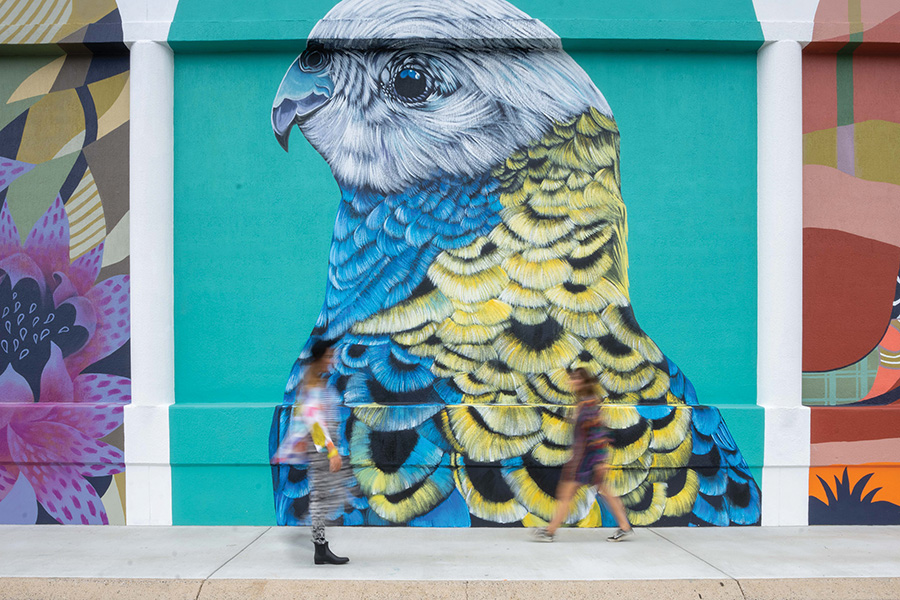
Birdlife detail from Stockland’s largest mural by Shannon Crees, Binx and Caitlin Broderick at Rockhampton
A unique partnership
Stockland has partnered with Studio A, a well-known arts organisation that supports artists with intellectual disabilities. Our town centres proudly feature Studio A artworks on hoarding with annual changes facilitated through a licence agreement.
The collaboration allows us to promote the talent of Studio A’s artists to our customers using the hoarding that is regularly installed for centre redevelopments and upgrades as well as vacant spaces before they are filled.
- Emily Crockford’s Pumpkin Soup Under The Sea
- Catherine McGuiness’ Sparkly Dots Love Hearts
Meaningful Indigenous engagement
The Public Art Strategy has allowed us to extend our commitment to the objectives of our First Nations Strategy and actions of our Reconciliation Action Plan by providing platforms for meaningful engagement, deep storytelling, Designing for Country, and Indigenous procurement.
At Stockland Point Cook, we collaborated with longstanding community partner CoLocal and artists Fiona Clarke and Kenneth McKean to create a 50-metre-long road mural, The Point Cook Rainbow Serpent.
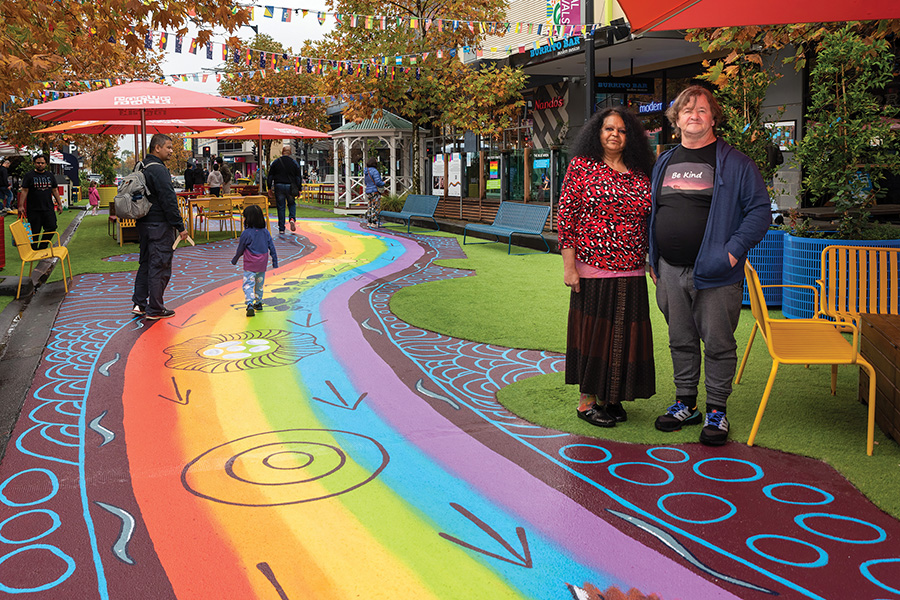
The community joined artists Fiona Clarke and Kenneth McKean to create The Point Cook Rainbow Serpent at the centre’s pop up park
The mural was a group effort with the local community and the artists painting the artwork across nearly 400 hours. The artists chose the Rainbow Serpent for its strong connection to the Aboriginal community, while the many colours used represent the diversity of the Point Cook community.
The beautiful artwork has given us the opportunity to embrace the varied and rich cultures of Aboriginal and Torres Strait Islander peoples and create a vibrant and engaging space for the community to come together and enjoy.
Public Art Strategy: benefits at a glance
- Customer experience: Revitalise dull or under-used spaces to improve Stockland Shopper Satisfaction scores
- Job creation: Meet social and Indigenous procurement targets
- Stakeholder engagement: Build and strengthen relationships with government and not-for-profit groups
- Community engagement:
Provide a focal point for the community to come together through workshops, storytelling and learning opportunities
Enhanced safety: Instil pride, respect and collective ownership of public art to enhance perceptions of safety and prevent crime - Diversity and inclusion: Showcase artists of all abilities and with diverse perspectives
- Cultural preservation: Embed connection to Country and First Nations knowledge sharing.
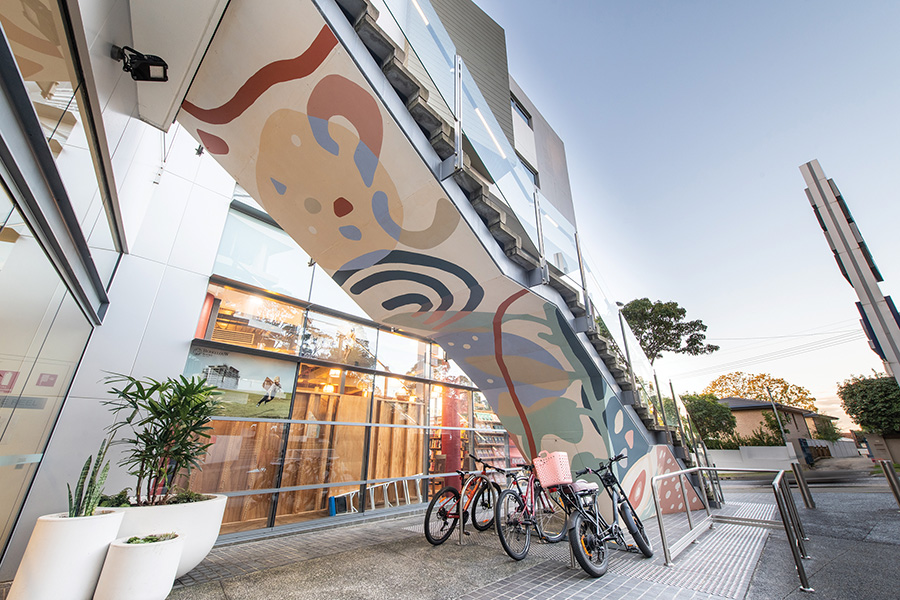
Artwork at Balgowlah by Pablo Ferguson-Castro of Chulo Creative is inspired by local flora, coastal colours and textures


